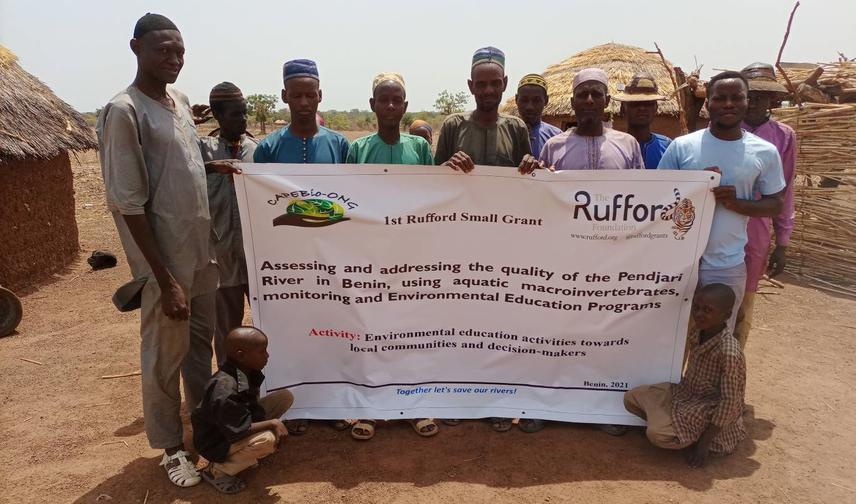Zinsou Cosme Koudenoukpo
Other projects
17 Jan 2023
Biomonitoring and Environmental Education Programs for Conservation and Sustainable Management of Three Wild Rivers of Pendjari National Park in Benin
This study aims at assessing the quality of Pendjari River, Benin by gathering information in a participatory way on environmental parameters and macroinvertebrates communities. Therefore, the study will provide the baseline data for development of future biomonitoring routine tools of the river and conservation activities of threatened species of Pendjari park. Sampling will cover stretches of river flowing through diverse habitats such as cotton growing areas, human settlement, and ecologically more pristine areas. Presence/abundance or lack of specific macroinvertebrates will be used as biological indicators. Data will enable decision makers to take appropriate integrated conservation measures for this important river. Finally, results will be used for environmental education (using Citizen Science approach) to strengthen awareness of cotton associations, local communities and decision-makers.

The Pendjari River is the only permanent watercourse in the Pendjari Biosphere Reserve (PBR), often referred to as the Pendjari National Park (PNP), situated in the extreme north-west of Benin and is part of the ramsar site no. 1669. It’s one of the most neglected and threatened, due to intensive subsistence agriculture, high levels of exploitation by local community, and high rates of habitat loss and degradation. In addition, no studies have been carried out on macroinvertebrate communities of the Pendjari River, which constitutes a handicap in the development and implementation of policies for sustainable development and integrated management of this aquatic ecosystem. Indeed, macro-invertebrates allow assessing the actual impacts of pollution and alteration of aquatic and riparian habitats.
The goals of this study are to:
i) inventory benthic macroinvertebrates of the Pendjari River in Benin;
ii) assess the diversity and distribution of macroinvertebrate community in relation to environmental features.
iii) Support the biomonitoring for conservation and sustainable management of the River with African Park Network authorities; and
iv) achieve environmental education (using Citizen Science approach) towards cotton associations and AVIGREF authorities.
Field study of the project is designed as a small-scale project (one year). The study will cover 9 sites during each season (dry and wet) from May 2020 to April 2021. Two sampling will be carried out per season. In wet season, sampling will be conducted in May and June 2020 whereas dry season sampling will take place in December and February 2021. Each sampling occasion will last two night and two days sampling. Direct field staying will be for Sampling (08 days) and environmental education of local communities and decision-makers (3 days). However, macroinvertebrates identification, data analyses and writing articles and technical information documents are indirect field works. The use of macroinvertebrates as bioindicators will serve as a baseline for future monitoring routine of the biodiversity of the Pendjari River. The study will result in reports to the funding body and management bodies such as African Park Network, Beninese Environment Agency, Direction of Fisheries Production and AVIGREF (Villages Associations of Wildlife and Reserves Management).